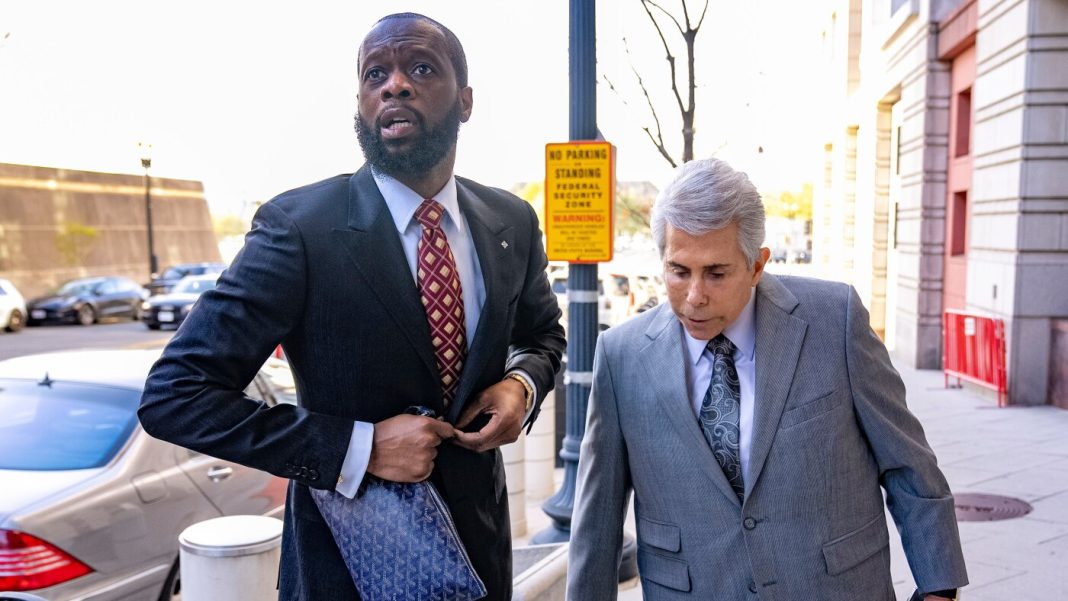The name Pras Michel evokes a particular kind of nostalgia for a generation. It conjures images of groundbreaking hip-hop, revolutionary sound, and the undeniable cultural force that was The Fugees. Their music, rich with conscious lyrics and innovative beats, transcended genres and borders, cementing their legacy in the annals of music history. To many, Pras was a part of that iconic trio, a voice in a chorus that spoke truth to power and spun tales of love and struggle with unparalleled artistry.
Yet, the melodies of memory are now sharply contrasted by a jarring, discordant reality. The news that Pras Michel has been sentenced to 14 years in prison for his involvement in an illegal campaign donation scheme casts a long, dark shadow over his once-lustrous career. It’s a shocking turn, a profound fall from grace that serves as a stark reminder that even those who once stood atop cultural pedestals are not immune to the gravitational pull of consequence.
The Unraveling of a Legacy
The story of Pras Michel’s entanglement in high-stakes political maneuvering feels like a script torn from a dramatic thriller, rather than the quiet denouement of a musical icon. His journey from platinum records to a federal courtroom is a complex narrative, one that speaks to the temptations of influence, wealth, and access. The charges against him weren’t merely about misplaced ambition; they centered on a deliberate effort to funnel foreign money into American political campaigns, blurring ethical lines and potentially compromising national interests.
For those who remember the Fugees as purveyors of conscious hip-hop, the idea of Pras Michel orchestrating an illicit influence peddling scheme is almost unthinkable. It forces a re-evaluation of public perception, highlighting the often-hidden complexities of human character and the paths individuals choose when confronted with power and opportunity. The public imagination struggles to reconcile the artist who once sang about freedom and justice with the individual now facing a decade and a half behind bars for undermining those very principles.
The Price of Unchecked Ambition
The details of the case reveal a web of intrigue involving an international financier, high-level political figures, and an intricate scheme to bypass campaign finance laws. Pras Michel’s role, as determined by the courts, was central to these efforts. This wasn’t a minor oversight; it was a concerted, calculated effort to manipulate the democratic process, fueled by a desire for access and influence that ultimately proved to be his undoing.
The 14-year sentence is not merely a punishment; it’s a profound statement from the justice system. It underscores the gravity of interfering with the integrity of elections and the serious implications of foreign interference. As one seasoned legal observer noted, “This sentence sends an unmistakable message that our political system is not for sale, and those who attempt to subvert it, regardless of their past achievements or public standing, will face severe repercussions.” It’s a testament to the idea that some lines, once crossed, lead to consequences that no amount of fame or fortune can mitigate.
A Sobering Conclusion
The news of Pras Michel’s sentence is a sobering conclusion to a chapter that began with the promise of artistic brilliance. It’s a stark, human story about choices, ambition, and the long, unforgiving reach of the law. While the legacy of The Fugees and their indelible mark on music will undoubtedly endure, Pras Michel’s personal narrative has taken an unexpected, tragic turn.
His story now serves as a cautionary tale, a powerful reminder that the pursuit of power and influence, when untethered from ethical boundaries, can lead to devastating personal and public costs. It forces us to reflect on the complexities of fame, the allure of the illicit, and the fundamental principle that justice, eventually, demands its due.




